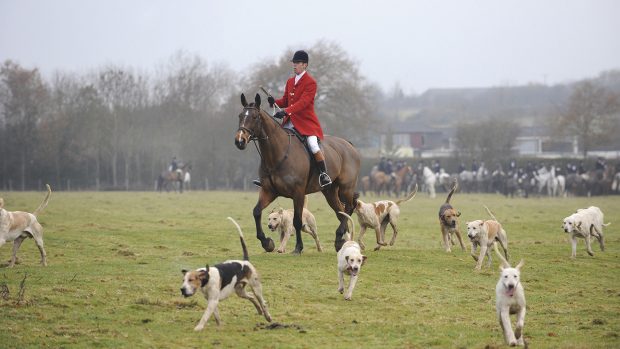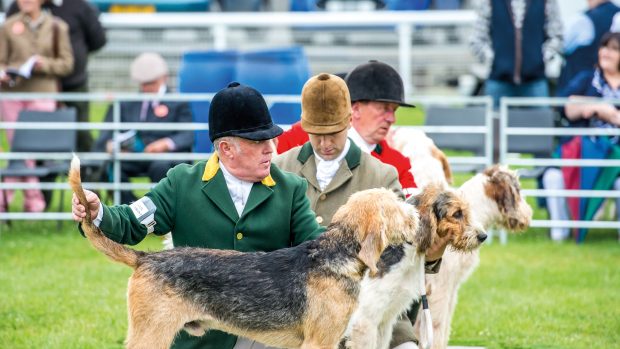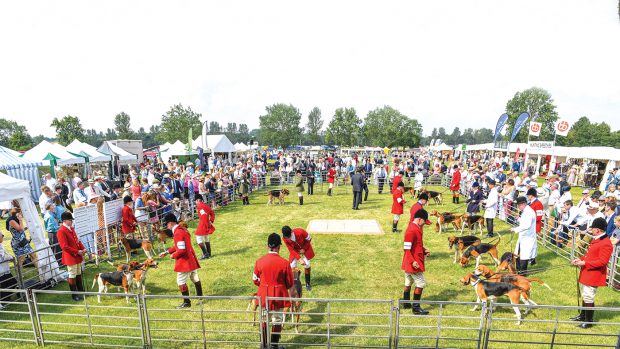Ever wondered how a field master knows what to do or thought you could do a better job than the person you have to follow out hunting?
Well it isn’t always as easy as some people manage to make it look but equally, if you understand hunting and know your country for a start, it isn’t quite as difficult as some field masters can make it look!
Getting in the way of hounds is a definite no-no, and jumping next to an open gate is also frowned upon, but what are the secrets to being a successful field master and ensuring order among those out hunting?
We asked some well-known and respected field masters, huntsmen and members of hunt staff for their top tips and points to remember as a field master.
Rowan Cope MFH — Pytchley Hunt
- Be sure that hounds come first and that you have a good understanding with your huntsman.
- It will take a few seasons to earn respect from your field and your farmers but ultimately that is what you strive to achieve.
- Be sure you have visited and contacted all the land owners whose land you plan to hunt on and you know whose field is whose if there was to be a problem.
- The field like a field master who can entertain them but who also has that certain wow factor which keeps them on their toes — popping over a hung gate off two strides often can sort them out!
- I’m not one to go on a joy ride, but when hounds go, there’s nothing better than following them in a straight line.
Mike Felton MFH — Blackmore and Sparkford Vale Hunt
- Know your country — that means walking every field and knowing how to get in/get out in different directions.
- When planning your jumping routes, try to mix them up so the field don’t start second guessing you.
- Heaven forbid that you lose hounds, but if you do, make sure you have learnt to read the countryside signals, for example, a flock of birds suddenly wheeling, stock moving in the distance, car followers high-tailing down a road and traffic slowed on a road.
- The biggest no-no is going where you have been asked not to or riding over the line where the trail has been laid.
Mark Hankinson — former master and huntsman of the Wilton
- The art is to stay just the right distance away from hounds — not so far back that no one can see the action but never on top of the huntsman.
- Remember that a huntsman hates nothing more than having the field breathing down his neck— everyone gets frustrated on a bad scenting day but trying to make hounds draw faster by riding on the huntsman’s heels is not the answer.
- Do your best to keep the field up together — hunts are often circular and having the tail-enders getting in the way is likely to turn the air blue.
Gary Thorpe — huntsman of the East Essex
- Walk your hunt country with your huntsman so you can both work on a planned draw.
- Good communication on a hunting day between huntsman and master is vital. There is no point the huntsman hunting a trail if the field master and members of the field aren’t able to follow you.
Philip Cowen MFH – Fernie Hunt
- Knowing all of the country in as much detail as you know the route to your local pub.
- When in doubt about which route to take, don’t be afraid to sit and wait for a while until you are certain of your decision. Rushing around like a headless chicken only makes the hole a whole load bigger.
- Remember that the huntsman is always right, but the Master is never wrong.
- And finally., never let anyone know too much about your plans for the day — however important they may be — as their enthusiasm to get ahead of you may only serve to ruin and frustrate all of the best-laid plans.
Derek Ricketts – field master of the Bicester Hunt with Whaddon Chase
- If you make a decision and get it wrong, stay positive and pretend you intended to go that way.
- Understand how your huntsman likes to hunt.
- Give the paying public as much fun and enjoyment as possible.
- Always be well mounted and well turned out.
Rory Knight Bruce — H&H hunting correspondent
- Remember that successful field mastering is only achieved by complete trust with the huntsman.
- When the huntsman is drawing, keep the mounted field a good field and a half away.
- Anticipate what is likely to happen and never stop the field in a gateway.
- Be firm with “skirters” or so called amateur whippers-in — some are purely hunting for themselves.
- Make sure there is someone out hunting who, if people can’t keep up, keeps an eye on the stragglers or the non-jumping field.
- Keep the pace of the day, for example. don’t stand looking at a row of hedges then jump them simply “to entertain the riders” when there are clearly gaps on either side. This is a discourtesy to the farmers and field mastering is about taking obstacles when hounds are running.
Will Dalton MFH – Kimblewick Hunt
- Keep things simple and give yourself time.
- Pick your best line to entertain the field. In many hunt countries, gone are the days of “following them in a straight line” but you need to try and follow in as straight a line as possible though.
Jeremy Reed MFH — Flint and Denbigh Hunt
- The ideal field master is as important as the huntsman — one looks after the field while the other must be able to shut himself from what is going on behind him to enable him to see and hear what the hounds are doing.
- Try to read the huntsman’s mind — this is near enough impossible but can be mastered with time!
Charles Carter MFH — West Norfolk Hunt
- Field mastering is a fairly thankless role with the potential for mistakes and grief, with very little praise.
- Above all, remember to keep smiling, keep thrusting and have fun because those behind you will follow suit.




